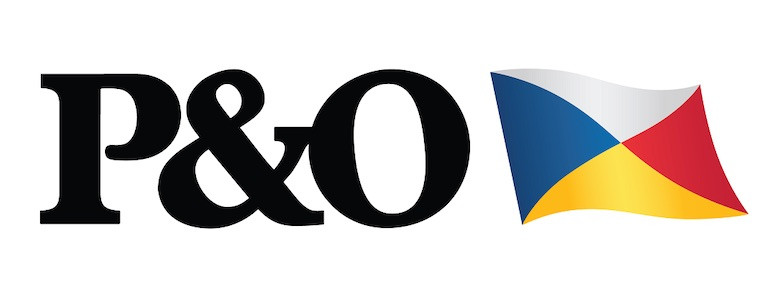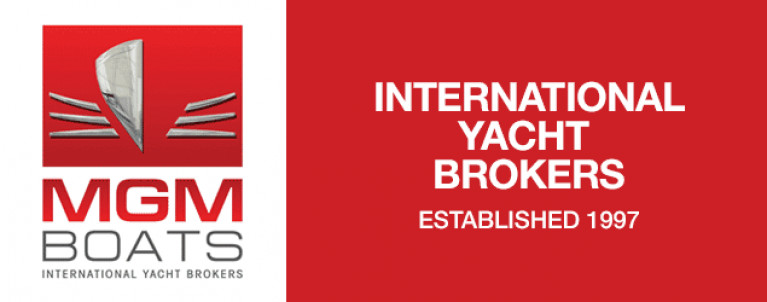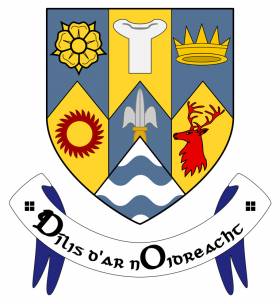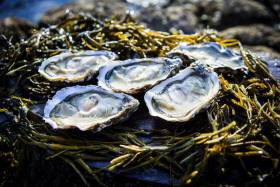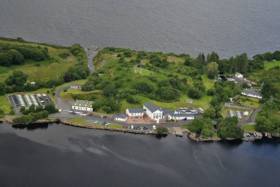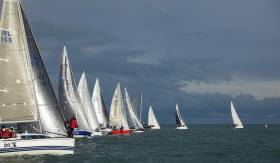Displaying items by tag: jobs
Celtic Freeport Among Bidders Could Generate 16,000 Jobs In Wales
The granting of a freeport status to two ports in Wales would generate billions of pounds say campaign backers.
Among the three bidders is Celtic Freeport which hopes to see the south Wales ports of Milford Haven and Port Talbot become the first such port in the country since 1980.
Milford Haven Port (including Pembroke Dock) is the UK's largest energy port while Port Talbot in neighbouring Neath Port Talbot County Borough has major steelwork plants.
They hope that their bid will be given the status which would lead to relaxed tax and customs rules benefitting both regions with £5.5 billion expected in new investment.
Celtic Freeport which Afloat reported in December, promises to create 16,000 new jobs. In addition to reducing harmful carbon emissions on the overall environment of Wales.
The freeport bid is backed by Associated British Ports (ABP), Neath Port Talbot and Pembrokeshire councils and Milford Haven Port Authority.
The ports and councils backed bid is based around maximising local benefits of a separate plan in the Celtic Sea for floating offshore wind projects.
So what is a Freeport?.... click BBC News for more.
World Sailing Advertises Vacancies at London HQ
World Sailing, the sports governing body has a number of employment vacancies at its headquarters in London, UK.
The organisation is looking for:
- a social media digital communications manager
- a graphics designer
- a technical - Olympic equipment manager
- a technical specialist
- a World Sailing classes executive
- a partnership manager
All positions are based at World Sailing headquarters in London, UK. Applications should be sent to [email protected].
Applicants should provide a current CV and covering letter. The closing date for all vacancies is 8 January 2022.
More here
Marine Technical Co-Ordinator - VACANCY FILLED
This vacancy has been filled - February 1 2021
P&O Maritime Services is a global company providing specialist maritime service solution through ownership, operation and management of a fleet of specialised vessels.
In Ireland, we manage Ireland's Marine Science vessels 'RV Celtic Explorer' and 'RV Celtic Voyager'.
Based in Galway, the Marine Technical Co-Ordinator will be responsible for Technical procurement and assist the Technical Manager with ship and scientific related projects.
Requirements:
- Relevant Bachelor of Engineering qualification or equivalent.
- It would be advantageous to have a minimum of 3 years relevant experience onboard ship as Engineer – preferably having a 2nd Engineer COC.
- Workshop & Fabrication skills plus a working knowledge of CAD / Engineering Drawing.
- Strong negotiation and communication skills.
- A background of working within an asset management role is desirable but not essential.
- Good Computer skills and experience with a computerized PMS / Purchase ordering system.
For a full job description or to apply for this role please send CV and covering letter to [email protected]
Boatyard Operative Required By MGM Boats, Dun Laoghaire Harbour
MGM Boats Ltd is looking for a Boatyard Operative to join their award-winning boatyard team in Dun Laoghaire Harbour, Co. Dublin.
Experience in boatyard operations, hull polishing, valeting, antifouling etc preferred.
Apply in confidence by sending CV to: Paul Gavin, Boatyard Manager, MGM Boats Ltd, Dun Laoghaire Harbour, Co, Dublin. email: [email protected]
Atlantic Youth Project Gets €388k To Boost Maritime Opportunities for Clare’s Young People
In partnership with four other EU local authority areas Clare County Council has received European Union (EU) funding totalling €388,000 to increase participation in maritime activities and to encourage young people across Clare to consider maritime related careers.
The Local Authority’s Social Development Directorate, through its remit to increase overall participation levels in sport and physical activity in Clare, has been awarded the EU Erasmus+ programme funding as part of the ‘Atlantic Youth Project’.
“As the only Irish partner in the European-wide project, Clare County Council is tasked with encouraging and developing the maritime culture of young Europeans, through the practise of water sports and maritime education at school,” explained Tim Forde, Head of Sport & Recreation, Clare County Council.
He continued, “Over the three-year term of this project, the Local Authority will facilitate the involvement of a significant number of second level school children with opportunities to participate in water sports in our county whilst also participating in organised maritime education opportunities that will be EU-funded.”
Mr. Forde and Liam Conneally, Director of Social Development, Clare County Council, represented the Local Authority at the project launch and inaugural meeting of the participating partners which was held recently in Viana do Castelo, Portugal, home to the Lead Partner, Cim Alto Minho.
Mr. Conneally noted that Clare had been selected to participate in the ‘Atlantic Youth Project’ due to its “ready access to sea and river waters surrounding the County, maritime heritage, existing maritime infrastructure for hosting project activities, and Clare County Council’s lengthy track record of delivering education outreach programmes.”
“With partners in Spain, Portugal, France, UK and Ireland (Clare County Council), the Atlantic Youth Project will also contribute to the implementation of the EU’s Atlantic Maritime Strategy, through the development of a maritime culture among young people which in turn will encourage the upcoming generation to consider maritime sport, recreation and industry as a career path,” he added.
Over the coming months Clare County Council will be working with sporting and educational stakeholders across the County and will confirm details of the rollout of the ‘Atlantic Youth Project’ in County Clare in early 2018.
Inland Fisheries Ireland Recruiting Temporary Research Staff
#Jobs - Inland Fisheries Ireland’s R&D division has secured external funding to undertake a series of research projects, which are currently seeking to recruit a number of staff as research technicians and fisheries assistants.
Interviews will take place in mid to late March to fill a number of positions for periods of up to a maximum of 10 months’ duration during 2017, and a panel for subsequent positions will be compiled following interview.
All positions will be based at the current IFI head office in Dublin’s Citywest Business Campus.
Research Technician
The appointee will provide technical support to the Senior Research Officer (SRO) and project team in the compilation and analysis of data of relevant biotic and abiotic information for fish species in Irish lakes, rivers or estuaries, using standard fish sampling methodologies.
Principal duties and responsibilities include:
- Data collection: Carry out and lead field surveys when necessary, collect data on the abundance, composition and age structure of fish populations from designated waterbodies, collect data on the distribution, biology and ecology of fish species in designated waterbodies.
- Data analysis: Collate and input data into project databases and present data in report format as required, data mining, conduct statistical analyses (descriptive and analytical) of data sets, including using relevant statistical software, manage fisheries datasets for the project, assure quality of data including editing and verification of consistency, create tables, charts and graphics with narrative text, interpret data, analyse and prepare reports.
- Reporting: Maintain raw data and all other records in a clear concise format and compile and maintain all records in a manner compatible with GIS.
- Other duties: Liaise with the project team and stakeholders and attend/contribute to information meetings as required, liaise with other IFI staff working on related projects as required.
Requirements for this position include a relevant diploma or degree or equivalent, and a full driving licence valid in the State. Salary is at the first point of the technician scale (as at 1 January 2016): €32,231 to €51,717 (including 1 LSI).
Fisheries Assistant
The appointee or appointees will assist the Senior Research officer and team in the compilation and analysis of relevant biotic and abiotic information for fish species in Irish lakes, rivers or estuaries, using standard fish sampling methodologies.
The successful candidate or candidates will be expected to:
- Assist on field surveys (if necessary).
- Undertake processing of sample material and providing assistance to the SRO with sample analysis.
- Assist in the processing of fish samples, collate scale, otolith and opercular bone samples to provide information on age profile and growth rates of fish species, and input data into IFI databases.
- Maintain raw data and all other records in a clear concise format.
- Compile and maintain all records in a manner compatible with GIS.
- Liaise with other IFI staff working on related projects as required.
Requirements for this position include a Leaving Certificate or equivalent with minimum Grade C on at least two Higher Level papers, to include one of Biology, Chemistry, Physics, Geography or Maths, and a full driving licence valid in the State. Salary is at the first point of the fisheries officer/fisheries assistant scale (as at 1 January 16): €22,907 to €36,235 (including 2 LSI’s).
Applications, (a cover letter and up-to-date CV) should be sent to [email protected] by 5pm on Friday 3 March. Please quote either ‘Fish’ for Fisheries Assistant roles or ‘Tech’ for the Technician role,s depending on which you wish to apply for. Late applications will not be processed.
Short listing will be based on information provide in the cover letter and CV. Canvassing will disqualify. Inland Fisheries Ireland is an equal opportunities employer. All enquiries to [email protected].
IFI Recruiting Fisheries Officers For 2017 Season
#Jobs - Inland Fisheries Ireland (IFI) is currently seeking to recruit a number of staff as fishery officers nationally for periods of up to six months during 2017.
Fisheries officers will be primarily concerned with the implementation and enforcement of the provision of the Fisheries Acts, Water Pollution Acts and other relevant statutory provisions. They are required to:
- Provide, in co-operation with other fisheries staff, comprehensive conservation and protection services, inland and at sea, within any part of a fisheries district and/or any other area assigned within one or more fisheries districts.
- Provide, in co-operation with other fisheries staff, comprehensive improvement, and development and fisheries management support services within any part of a fisheries district and/or any other area assigned within one or more fisheries districts.
A number of positions will be concerned with assisting either directly or indirectly in fisheries related research projects. The full job specification is available HERE. Please note a full driving licence valid in the State is required.
Applications (a cover letter and up-to-date CV) should be emailed to [email protected] by 5pm on Monday 27 February quoting ‘HR/FO/2017’. Late applications will not be processed. All enquiries to [email protected]
Salary will be at the first point of the Fishery Officer Scale (as of 1 January 2016) plus an unsocial hours allowance, which will be paid at either 50% or 100% relative to the number of unsocial hours worked.
IFI is an equal opportunities employer. Canvassing will disqualify.
Marine Institute Recruiting Temporary Laboratory Analyst For Foodborne Viruses In Shellfish
#Jobs - The Marine Institute requires a laboratory analyst to provide support to a two-year research project investigating norovirus, hepatitis A virus, hepatitis E virus and sapovirus concentrations in oysters.
The work will primarily involve laboratory based detection of the viruses in oysters using existing and proposed molecular procedures. In addition, there may be some elements of field work including sampling and environmental monitoring.
This temporary specified-purpose contract of employment is funded under the FIRM programme and will run for a duration of up to two years. The successful candidate will be on probation for the first six months.
To apply, a CV and letter of application summarising experience and skill set applicable to the position should be emailed to [email protected] or posted to Human Resources at the Marine Institute, Rinville, Oranmore, Galway. All correspondence for this post should quote reference LA-FIRM-Jan 2017
All applications for this post should be received by the Marine Institute before noon next Tuesday 7 February. Late applications will not be accepted.
A detailed job description is available from the Marine Institute website HERE.
Taoiseach Announces €6M Investment & 20 New Jobs At Co Mayo Marine Research Facility
#MarineScience - Taoiseach Enda Kenny today (Saturday 28 January) announced the creation of 20 new jobs and a €6 million investment in the Marine Institute's facility in Newport, Co Mayo.
The 20 new positions will be based at Newport research facility where they will be engaged in a number of projects funded from a secured pot of €6 million in research grants from a number of agencies including the Science Foundation Ireland, Interreg, EU H2020/European Research Council, European Maritime and Fisheries Fund (EMFF) and the British Research Council.
Speaking in Furnace, near Newport, the Taoiseach — who is also TD for Mayo — said the move “is very timely following the launch of Realising our Rural Potential – the Action Plan for Rural Development earlier this week.
“The Newport facility is a real example of innovation taking place in a rural community and creates exciting opportunities both now and in the years ahead.
“Scientists at doctoral and post-doctoral level working at the facility are involved in conducting research with not only national implications, but also international relevance. In other words, it firmly brings what is a rural area into a national and international context.”
The Taoiseach added: “This is a relatively unique research facility in operation since 1955 and I am delighted to see the continued excellent quality research that is taking place following €6 million in funding from research grants.
“I also wish to thank the Marine Institute and their educational partners for their efforts in building a strong international reputation for marine research and innovation."
The Marine Institute says a range of cutting edge research is carried out at its Newport facility including genetics work across several species of salmon, sea bass and pollock, research on the catchment, and climate change.
The facility is attracting multiple Irish Higher Education Institutions and international partners including University College Cork, Queens University, University College Dublin, GMIT, Dundalk Institute of Technology, NUI Galway and the University of Glasgow.
In addition, the Marine Institute is working with Mayo County Council to actively develop new initiatives at the facility to further enhance what the Marine Institute can offer and benefit the local area.
Supporting the announcement, Marine Minister Michael Creed said that his department and the fishing industry consider pollock “a very important commercial species for some elements of the Irish fleet. It is good to see a new project on this species being carried out in Newport, using the scientific expertise that is there."
Marine Institute chief executive Dr Peter Heffernan added: "Ireland has been gaining a reputation in Europe, and internationally for its marine research and innovation, and for driving collaboration in this area. We have a strong marine research community supported by growing national research infrastructure.
“This €6 million investment programme will see the Marine Institute expand its research capacity at its Newport facility and the continued investment in marine research will ensure that Ireland stays at the cutting edge of research and innovation."
In his own welcoming statement, Mayo county manager Peter Hynes said: "This is fantastic news for Mayo and the West region and Mayo County Council looks forward to continuing to work with the Marine Institute to further develop this cutting edge research facility here in Newport."
Howth Yacht Club Seeks Sailing Development Officer
#HYC - Howth Yacht Club is recruiting for the role of Sailing Development Officer.
The successful applicant will help create and implement a programme that will increase participation in sailing and other marine activities, devise marketing initiatives to promote/fund the sport of sailing, and increase club membership.
The skills required for this role include a passion for sport and an ability to devise and implement programmes to specific objectives which will be set by the successful applicant in conjunction with the club co-ordinator.
Applicants must have a proven ability to plan and successfully implement such programmes, and previous involvement in this type of role would be a positive attribute.
It should be noted that the club already provides sailing courses for all ages, including a world-class youth performance programme, all of which will be reviewed and enhanced.
The club also wishes to target new activities and markets, including large corporate organisations that wish to be linked with a facility that can provide an attractive and enjoyable lifestyle for their employees.
Applicants should have the skills to be innovative and self-motivated to achieve the set objectives, and should also have strong communicative and IT skills.
The Sailing Development Officer will report to the Commodore of Howth Yacht Club or another nominated officer. It would be expected that the successful applicant will report on a defined basis every two weeks to the nominated officer. Renumeration will be negotiated with the successful applicant and will be performance-related.
Applications should be sent by email to [email protected] or by post to:
The Commodore,
Howth Yacht Club CLG,
Middle Pier,
Howth Harbour,
Howth,
Dublin D13 E6V3


























